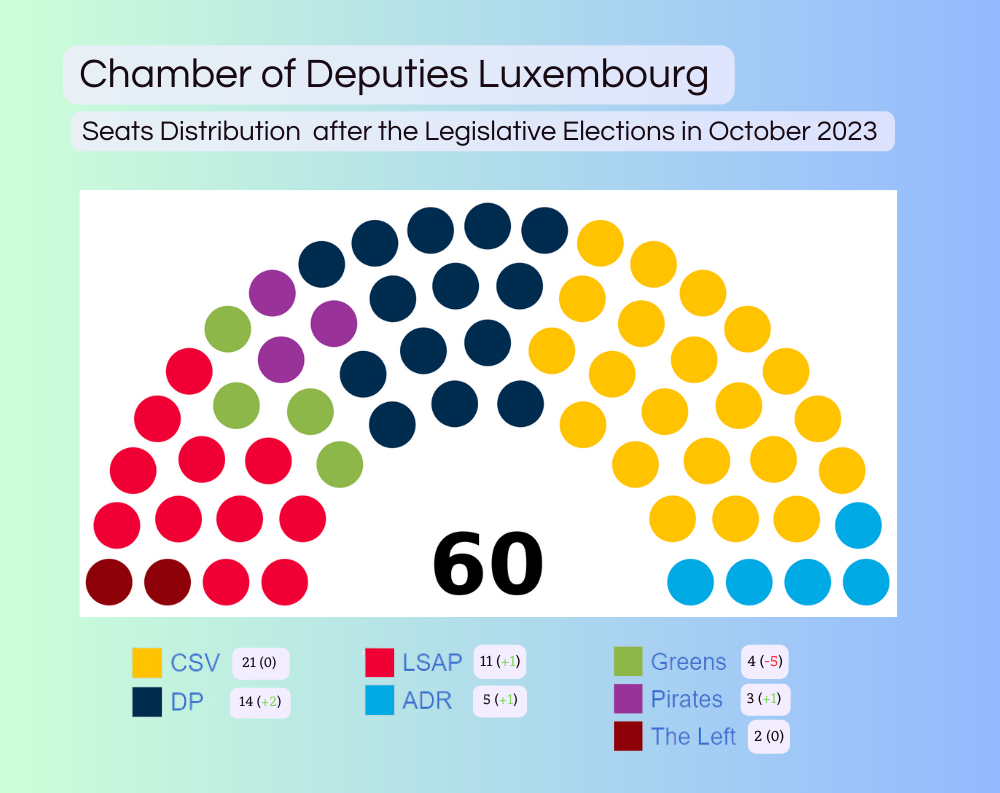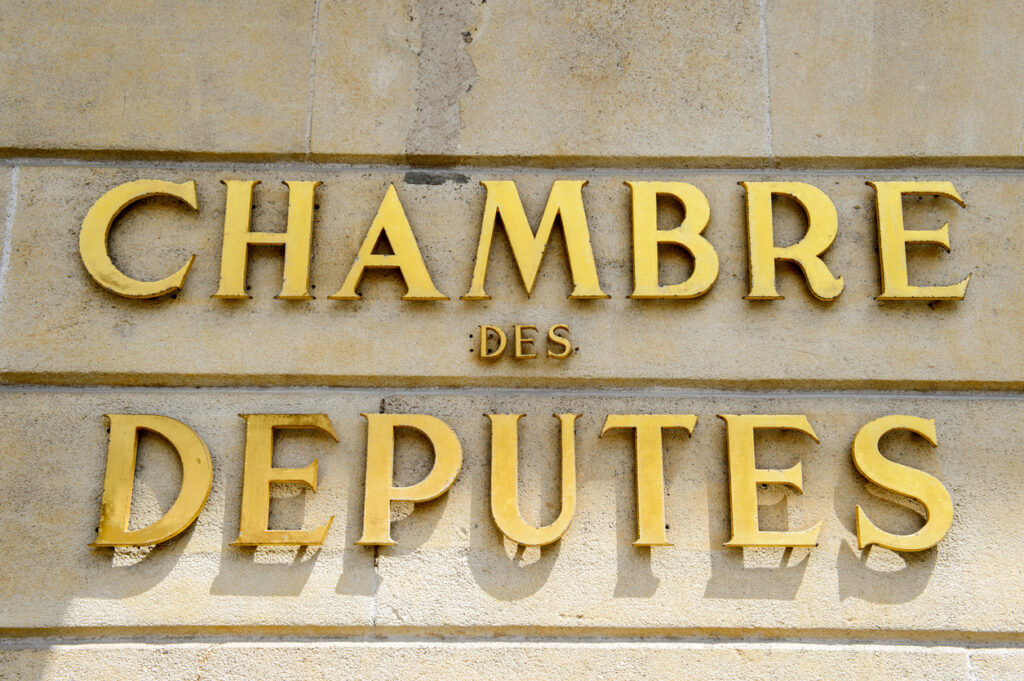On Sunday 8 October, voters in Luxembourg went to the polls to elect 60 members to the Chamber of Deputies. The previous three-party alliance of Liberals, Socialists and Greens lost its majority due to an unexpectedly large drop in votes for the Greens. Following the resignation of the previous government, the new government was formed five weeks after the elections under the leadership of future Prime Minister Luc Frieden.
The context of the elections
Among the four constituencies of legislative election in Luxembourg, in the central constituency, 26% of Luxembourgers believe that their standard of living has deteriorated. in the southern constituency, a more industrialised and working-class region, the same figure is 40%. Since 2018, this represents an increase of 10%. A little more than half of the population fears that the economic situation will worsen over the next 12 months. The main concern of Luxembourgers is access to housing at 69% agreement. Other important concerns are maintaining purchasing power at 38%, the environment and climate at 38%, health, social security and care for the elderly at 36%. A majority of 77 % of Luxembourgers believe that the government has failed to address housing issues, although the work of the government as a whole was rather appreciated.
Economic growth once again has taken precedence over the environment, a trend reversed compared to 2018. Questioned apart, the war in Ukraine is seen by many people as a problem: 87% fear economic consequences and 77% fear an extension of the conflict. (according to the results of a survey by the University of Luxembourg)
The election results
Some 286,000 people were registered to vote, which is around 10% more than for the 2018 general elections. The enlargement of the electorate is due to newly naturalized citizens. According to the study cited above, the foreigners as a whole would be slightly more right-wing than Luxembourgers, who are at the right of the center.
The big losers were the Greens (center-left), down by 6.57 % compared to 2018 (40% of their electorate), déi Lénk (radical left) lost 1.55% (25%) and the KPL (Communist Party), lost 0,67 % (50%).

At the other end of the spectrum, there was no real winner at the ballot box: LSAP (center-left) +1.31% to 18.91%, DP (liberal) +1.79% to 18.7%, CSV (center-right) +0.90 to 29.21%,the Pirates (liberal) +0.29% to 6.74% and the ADR member of the Party of European Conservatives and Reformists + 0.99 to 9.27.
The center-left coalition formed in 2013 and in 2018 (DP, LSAP and déi Gréng) lost 3.47%, i.e. 2 seats. The new coalition (CSV and DP) gained 2.69% votes and 2 seats, those of the DP. The Greens lost 5 seats, which went to LSAP (1), the DP (2), the Pirates (1) and the ADR (1), while dei Lénk managed to keep its 2 seats. The total number of seats in the chamber of deputies is 60.
Was there any movement to the right?
Let’s take the classic right-wing parties: the CSV and the ADR, they gained 1.89%. Add to that the DP, which during the campaign, brought security issues on political agenda, which gained 3.68%. The losses of the classic left-wing parties (Déi Lénk, the Greens, LSAP and the KPL) is minus 7.48%.
According to a study by Luc Biever, former director of the ILRES, a polling institute) the huge losses of the Greens were beneficial mainly to the DP, which lost some of its votes to the CSV. According to another study (Romain Hilgert, Lëtzebuerger Land) the popular vote favored the right a little more, particularly the ADR.
The defeat, which in terms of numbers may not be dramatic, it becomes so, when you consider each of the right-wing parties: the ADR has become a party that no longer denies its membership of the xenophobic right, it uses quasi-racist declarations and is in the process of becoming an authoritarian party, the CSV is led by an ultraliberal conservative, who says he wants to defend the interests of the financial center within the government (and this after Luxembourg dared to bring this sector into line with European rules); DP is led by business-minded pragmatists, who are increasingly using security related slogans to win the loyalty of an insecure liberal class.
Is a left-wing opposition possible?
It can only take shape through an assertive stance on class issues such as work, income indexation, the ecological transition, etc., but a popular front of pushing for these demands is unlikely, as the elected representatives of the Greens and the LSAP mostly belong to the right-wing fringe of their party.
What should our European partners expect?
Luxembourg will once again play the role of the best defender of the interests of finance capital. It will do everything it can to push towards liberalisation.
Since the CSV has withdrawn its opposition to the development of nuclear energy, it is to be expected that Luxembourg will not continue to support Austria in its opposition to the European Taxonomy Directive, which allows nuclear energy to be green.
The DP and CSV have also taken a clear stance against stricter regulation of international trade in the respect for human rights, and it is likely that their government’s representative will favor a European directive in the interests of the major groups.
Three points to outline the role that Luxembourg is likely to play over the next few years: Luxembourg has 6 MEPs in the European Parliament. The Greens may lose their seat to the ADR, which would translate at an European level the right-wing surge observed during the legislative elections.



